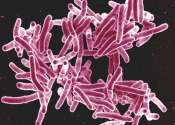Scientists one million 'hops' closer to ending a disease endemic in cattle
Many people have never heard of Brucellosis, but farmers and ranchers in the United States forced to cull animals that test positive for the disease and people infected by the animal-transmitted Brucella abortus (B. abortus) ...









